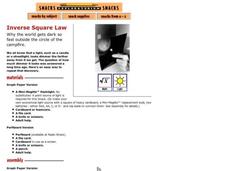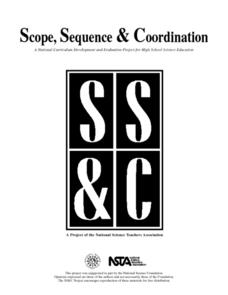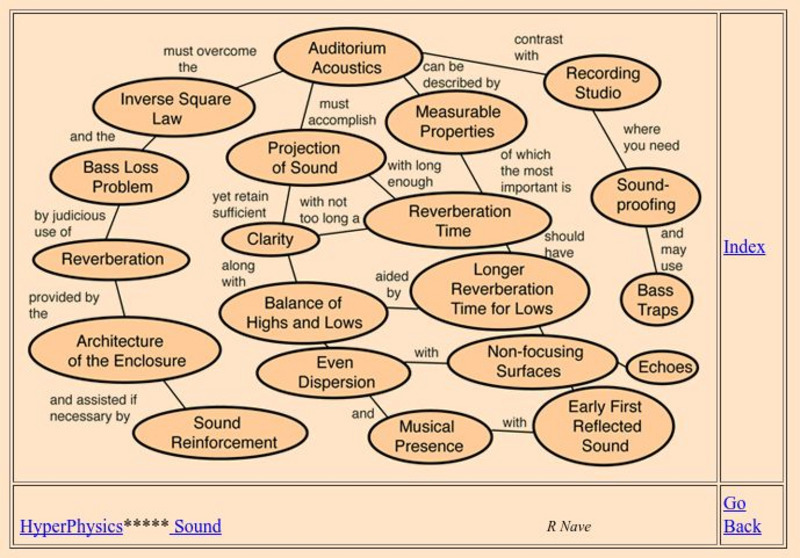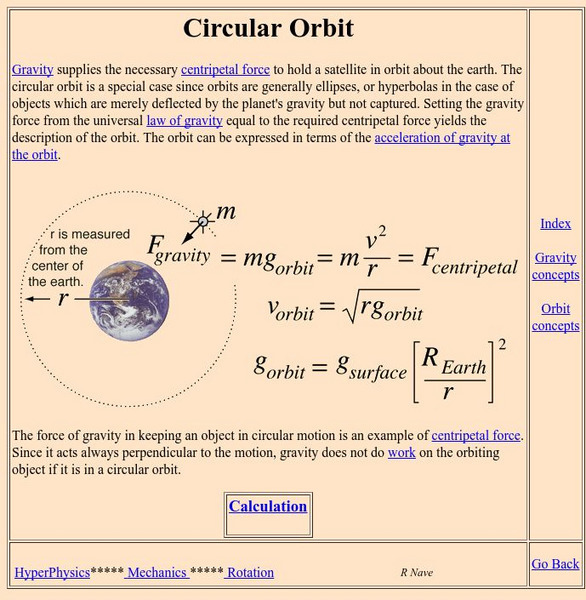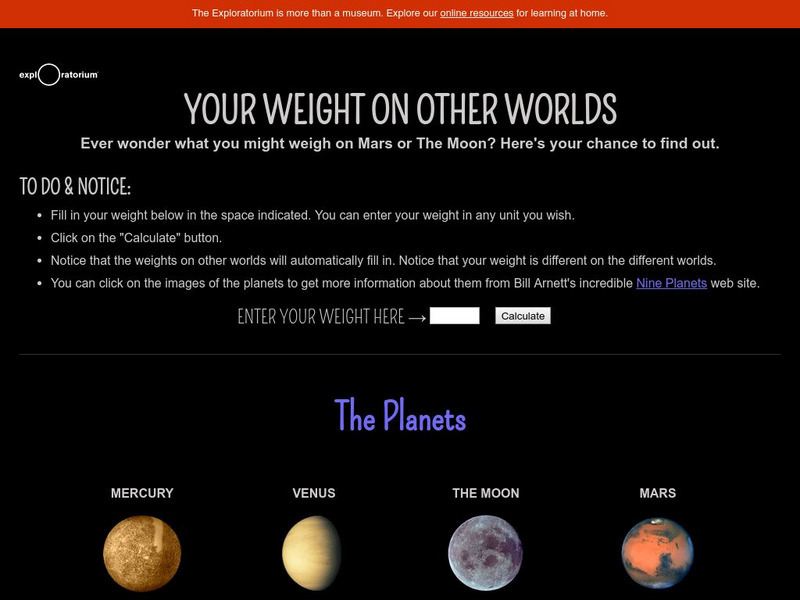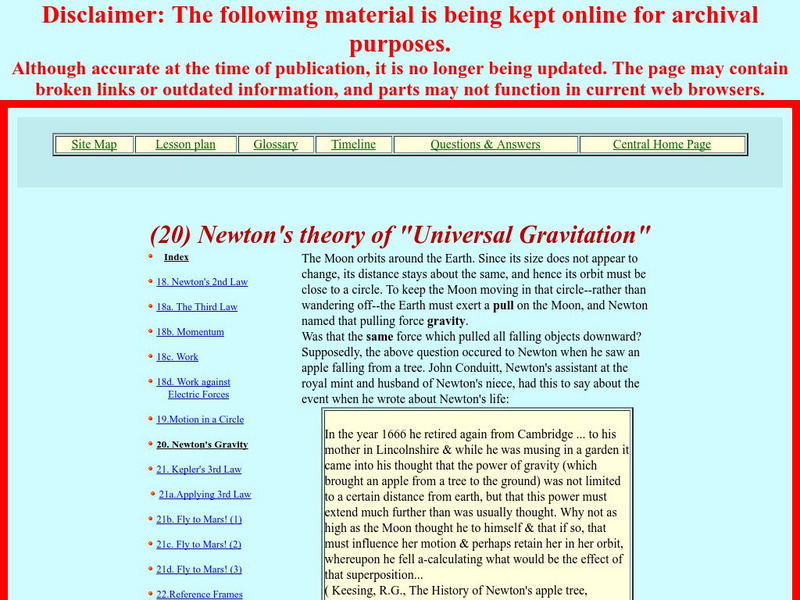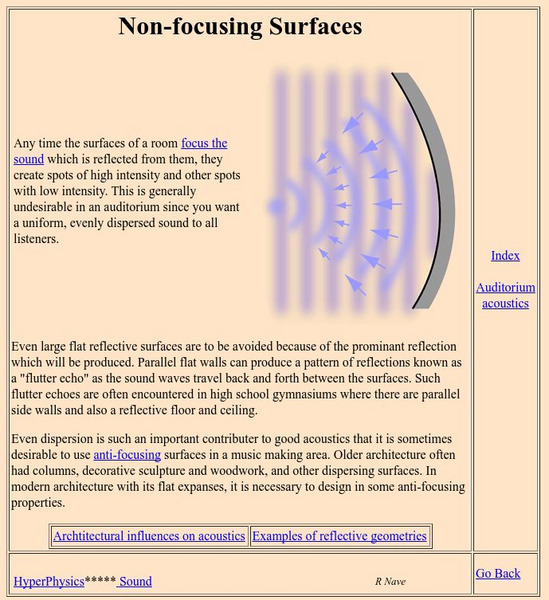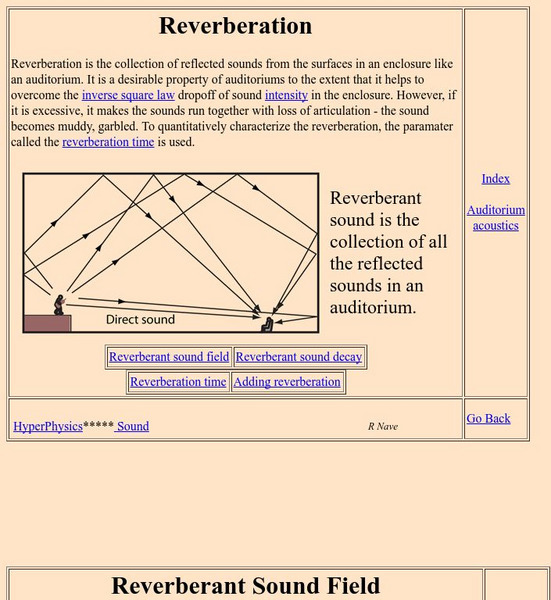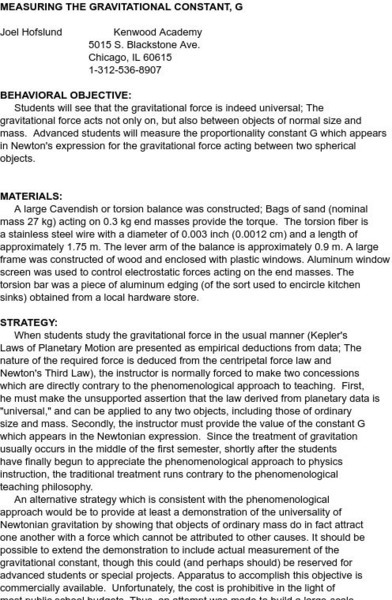CPO Science
Physics Skill and Practice Worksheets
Stop wasting energy searching for physics resources, this comprehensive collection of worksheets has you covered. Starting with introductions to the scientific method, dimensional analysis, and graphing data, these skills practice...
Exploratorium
Inverse Square Law
The inverse square law is revealed when your class participates in this activity. They move a graph paper or perfboard square back and forth in a square of light to see how the intensity changes. You will definitely want to add this...
NASA
Collecting Light: Inverse Square Law Demo
Light, distance, and mathematics come together to help scientists plan for space missions. Groups examine the relationship between distance from the sun and light availability in a hands-on exploration activity. They model the inverse...
Exploratorium
Oil Spot Photometer
Are these two light sources the same? Groups use a white card and a little cooking oil to create a photometer that allows for the comparison of two lights. The Inverse Square Law provides a way to calculate the actual difference in...
It's About Time
Newton's Law of Universal Gravitation
While science is looking for correct explanations, pseudoscience often fills in the blanks. Pupils explore the relationship between light distance and intensity and graph their data. Then they compare their data to Newton's Law of...
NASA
Just How Far is That Star?
Pupils often wonder how we know the distance to various stars. Starting with a thought experiment and progressing to a physical experiment, they determine the brightness and distance to various stars. The evaluation requires...
Curated OER
Dependence of Light Intensity on Distance
Hopefully you have a sensor interface for your physics class to use with graphing calculators when collecting data with a light sensor. If so, read on. Use this resource for learners to predict and then test whether or not the intensity...
Curated OER
Starlight
An introductory exploration of the nature of light is provided via activities and demonstrations. Science superstars observe various light sources, learn how to apply inverse square law, and practice using a light meter. Follow-up...
Curated OER
Sun, Spectra, and Stars
Get ready to spark interest in electromagnetic radiation! This resource shares nine indelible inquiries that you can choose from to ignite understanding of spectra and the relationship between light and heat. The assessments that follow...
Curated OER
Photometry of Stars and Clusters
Students apply an algorithm to measure the distance to stars in the night sky. In this photometry lesson, students observe stars in the night sky as they measure the distance to them and to the cluster, The Milky Way. They apply the...
Curated OER
The Math of Light
Investigate light intensity, illuminance, and power consumption of different light source.Compare the efficiency of light bulbs then create a persuasive advertisement about it.
Georgia State University
Georgia State University: Hyper Physics: Auditorium Acoustics
Home page for a hypertext physics course on auditorium acoustics and acoustical design.
Physics Classroom
The Physics Classroom: The Apple, the Moon, and the Inverse Square Law
Describes the logic behind the development of Newton's law of universal gravitation. Beginning with Johannes Kepler and his three laws of planetary motion, content walks the reader through Newton's thought process and development of this...
Georgia State University
Georgia State University: Hyper Physics: Earth Orbits
An equation for the law of universal gravitation is stated. The weight equation (W=m*g) is related to the law. An interactive JavaScript form allows the user to practice determining the force of gravity and the acceleration of gravity...
Exploratorium
Exploratorium: Your Weight on Other Worlds
From the Exploratorium Museum. Includes an interactive feature in which a visitor enters their weight on earth and has their weight on other planets computed and displayed. Discusses the distinction between mass and weight and describes...
NASA
Nasa: Newton's Theory of "Universal Gravitation"
This site, which is provided for by NASA, discusses the thinking which led Newton to understand universal gravitation.
Georgia State University
Georgia State University: Hyper Physics: Architecture for Acoustics
A physics tutorial on designing an auditorium and solving the problem of sound reflection. Illustrated.
Georgia State University
Georgia State University: Hyper Physics: Non Focusing Surfaces
This hypertext physics course tutorial on nonfocusing surfaces relates various design principles to good auditorium design. Illustrated.
Georgia State University
Georgia State University: Hyper Physics: Sound Propagation
This page and the many pages which are indexed to focus on the behaviors of sound which characterize it as a wave. Reflection, refraction, interference, diffraction and more are clearly illustrated and explained.
Georgia State University
Georgia State University: Hyper Physics: Reverberation
A tutorial from a hypertext physics course book that discusses reverberation. Illustrated.
Science and Mathematics Initiative for Learning Enhancement (SMILE)
Smile: Measuring the Gravitational Constant, G
A demonstration/lab idea for determining the numerical value of the universal gravitation constant using a torsion balance.
Georgia State University
Georgia State University: Hyper Physics: Earth Orbit Velocity
A discussion and statement of an equation for orbital speed. An interactive JavaScript form allows the user to investigate the relationship between orbital height and orbital speed. A very good opportunity to practice and receive...
Physics Classroom
The Physics Classroom: Newton's Law of Universal Gravitation
States the equation of Newton's law of universal gravitation. States the value of G and uses the equation to solve problems.
Physics Classroom
The Physics Classroom: Static Electricity: Lesson 3: Inverse Square Law
Electrical force between two electrically charged objects is inversely related to the distance between the two objects. Investigate why this becomes the inverse square law of physics. Engage in the Coulomb's Law interactive and check...



